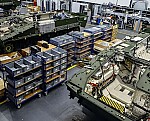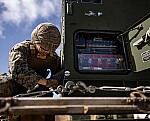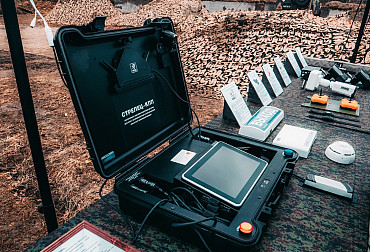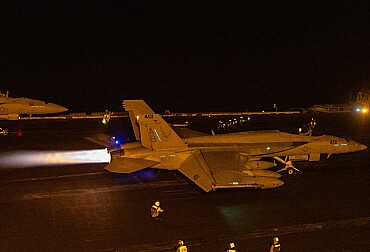Egypt's fight against terrorism - why Cairo is not opening the gate from Gaza
The less informed viewer has certainly been asking himself, not only in recent weeks, why Egypt has long refused to accept Palestinian refugees and has kept the gate between Egypt and the Gaza Strip tightly closed. In the following article, former intelligence officer and diplomat Jaroslav Kuchyňa explains why the Egyptian regime declared war on radical Islamists years ago and is certainly not going to let the Palestinians import it again.
After the Hamas terrorist attack in southern Israel on October 7, 2023, and the openly declared intention of the terrorists, the Palestinians and their supporters to destroy the state of Israel for good, the attacked side proceeded to retaliate. This is still ongoing and will continue for some time to come. Israel's aim is the definitive destruction of Hamas. It is a logical and understandable objective.
After what happened on 7 October, the Jewish State could not have done otherwise. A more moderate course of action would seriously jeopardise its existence. With Israel's projection of force in the Gaza Strip, the question of Plan B was immediately raised in the international community, with its attendant concern for the fate of the nearly two million Palestinians living in an area completely controlled by Hamas. At the same time, from the moment the Israeli tanks started up and moved towards Gaza, it was clear that those states that sided with the Palestinians wanted nothing to do with the Palestinians on their territory in principle.
We stand with you, but we certainly don't want you here
The position of the Arab countries can be formulated as follows: "Brothers - we are with you, you have our support, your struggle is just, but we do not want you with us." The experience of Palestinian refugees, which has historically been Jordan's or Lebanon's, is cautionary. The Palestinians have brought with them to these countries their Palestinian problem and, above all, their most famous export - terror. Egypt, which has not experienced such a large exodus of Palestinians on its territory, but which is the only one that borders Gaza directly, is no exception. The idea of Cairo opening the Rafah crossing to people from Gaza is terrifying for President Sisi. Abdel Fatah al-Sisi and his security apparatus know what they are doing by keeping the Rafah crossing hermetically sealed, in the direction of Sinai. Egypt has experience with the Muslim Brotherhood and realises that it is Hamas that has its DNA. The founder of Hamas, Sheikh Ahmed Yassin, identified it as a political offshoot of the Muslim Brotherhood for Gaza as early as 1988, and Egypt was immediately alerted after his declaration.
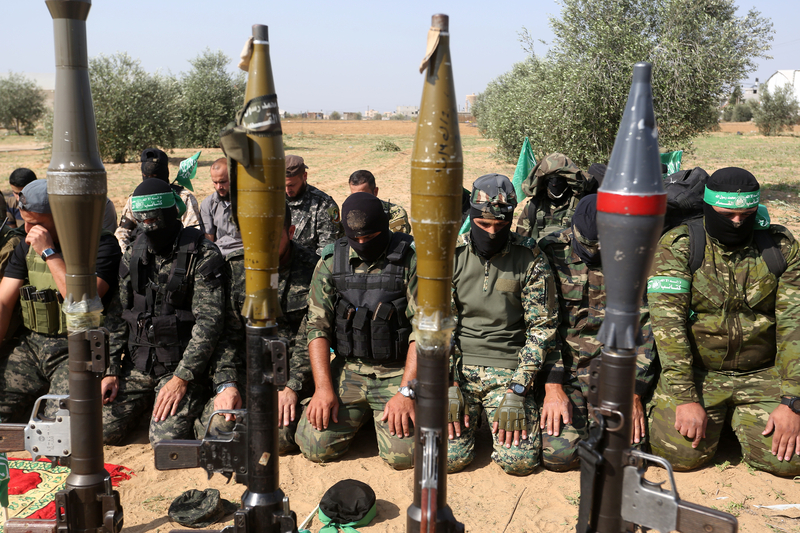
The Muslim Brotherhood (MB) was founded in 1928 in Ismailia, Egypt. Its founder, Hassan al-Banna, was doing so in response to the British administration in Egypt. Immediately after its creation, the MB's programme statement included the issue of a return to Islamic roots and a call for the introduction of Sharia law. After the 1948 Israeli-Arab war, the MB began to radicalise to the point of committing assassinations and terrorist attacks throughout the country. It has been labelled a terrorist organisation on several occasions, during the governments of Presidents Nasser, Sadat, Mubarak and, today, Sisi.
The Muslim Brotherhood's rule in Egypt was rather ended by the army
The MB's path through modern Egyptian history thus led through charity work, the establishment of Islamic schools or hospitals, declarations of justice, freedom and equality, to the creation of Islamic militias attacking Copts, and ended with terror against all. The MB also had its own foreign policy. Among other things, it called for a reassessment of relations with Israel. After the Arab Spring, the MB came up with the slogan "Islam is the solution" and the political party it set up (the Freedom and Justice Party) won the elections. Its head, Muhammad Morsi, became president in 2012 and the MB came to power in Egypt. The strong Islamisation of the state promoted from the beginning of his rule changed the atmosphere in the country so much that after just one year the Egyptian army, led by Sisi, overthrew Morsi. The MB was once again designated a terrorist organisation. While millions demonstrated in Egyptian cities for the fall of the Mubarak regime, after a year of MB rule, tens of millions of Egyptians supported the military coup. Egypt's moderate Sunni Islam had had enough of the MB. The Muslim Brothers quickly took over the public administration during their short reign, including the universities - not only Al-Azhar, but also Cairo University and Ain Shams University. But they did not take over the military. Hamas emissaries came to Cairo regularly during the Brotherhood's rule, and Morsi discussed with them the lifting of the blockade of Gaza. During the same period, a mob of Islamic radicals attacked the Israeli embassy in Cairo and broke into its premises. B. Netanyahu at that time asked for the intervention of B. The incident was resolved by the Egyptian army. What also happened was that Morsi released a number of radical MB supporters from prison. They have disappeared, especially in the Sinai. Some joined terrorist groups there, others got lost in the tunnels and only turned up in Gaza.
In 2014, Sisi became president, but he had already begun the destruction of the tunnels near Gaza. In the first period of his presidency (2014-2018), the terrorist Champions League was "played" in Egypt. The MB took revenge for being removed from power. His terrorist groups such as Ansar Bayt Al Maqdis collaborated with Al Qaeda, Hamas and quite quickly found a partner in the Islamic State. On the local terrorist scene, the Islamic State of Sinai Province became the strongest player. Terrorists have attacked the infrastructure and the armed forces of the Egyptian army and police. Later, politicians and, eventually, foreign tourists were targeted. The biggest battles between Islamists and the army took place in the northern part of the Sinai peninsula, close to Gaza. Weapons and foreign fighters had already been flowing into Gaza through Egypt's Western Desert. Later, weapons from Gaza became the instrument of terrorist attacks perpetrated not only in the Sinai but throughout the country.
Egypt's 10-year war on terror
The first four years of Sisi's rule saw hundreds of terrorist attacks. Dozens of them were very serious and about five were gigantic. These included the attacks on Coptic churches in Cairo and Alexandria, with a large number of casualties, the bombing of the Italian consulate in central Cairo, and the assassination of Attorney-General Hisham Barakat in the capital. In Cairo, there were also acts of terror in Giza, near its greatest monument, the Great Pyramids. The so-called 'Sakkara Road' (Asuan Western Agriculture Road), which leads to the burial sites of Abusir, Sakkara and Dahshur, has become the route of death from Cairo to the South. There, police check-points have been shot up several times, including near the place where the Czech Institute of Egyptology expedition worked and still works. Weapons from Gaza were also used in Upper Egypt at the Karnak temple and at other places hundreds of kilometres away from Gaza. The entire area of the northern Sinai Peninsula has been turned into a battlefield. In 2015, the Islamic State claimed responsibility for the downing of a plane carrying Russian tourists flying from Sharm al-Sheikh to St Petersburg - 224 dead. In 2017, the Sufi Al-Rawda mosque, located near the border with Gaza about 50 kilometres from the Egyptian city of Arish, was shelled. Over 300 praying Muslims were gunned down by terrorists claiming to be the only true Islam represented by the Islamic State of Sinai Province. The area near Gaza, especially around the towns of Arish - Sheikh Zuweid - Rafah, has become the most dangerous place in the whole of Egypt. Some terrorists have disappeared into the mountains of northern Sinai after carrying out attacks, while others have taken refuge in tunnels or directly in Gaza.
President Sisi, the army and the Mukhabarat (General Intelligence Service) have declared war on the radical Islamists. North Sinai became a polygon for the Egyptian army's operations and was essentially cut off from the rest of the country. In mainland Egypt, intelligence services and police sought out MB activists suspected of supporting terrorism. Prisons across the country were filled with Islamists, regardless of protests from Western intellectuals, NGOs or selected EU countries. Criticism was mainly about the restriction of human rights of detainees and prisoners. According to Sisi, those convicted of terrorism have deprived themselves of their rights. In the Sinai, most of the tunnels leading from Egypt to Gaza were gradually flooded or destroyed. The area around the towns near Gaza - particularly the aforementioned Rafah and Arish - has also been cleared of terrorists. The army has minimised the smuggling of jihadists and weapons into Gaza and their eventual movement for operations back to Egypt.
Sisi has succeeded in neutralising radical Islamists linked to the Islamic State, the MB and Hamas. It took almost ten years! All this time, the Egyptian army and security forces have been working with, among others, Israeli partners. There has never been any criticism from Jerusalem towards Cairo questioning the legitimacy and the way in which Egypt's fight against terrorism has been conducted. Egypt has lost too many soldiers, policemen and intelligence officers in the fight against radical Islamists, and has had many civilian casualties. President Sisi is aware of this and knows very well that opening the gates of Gaza is tantamount to opening the gates of hell for Egyptian security.





